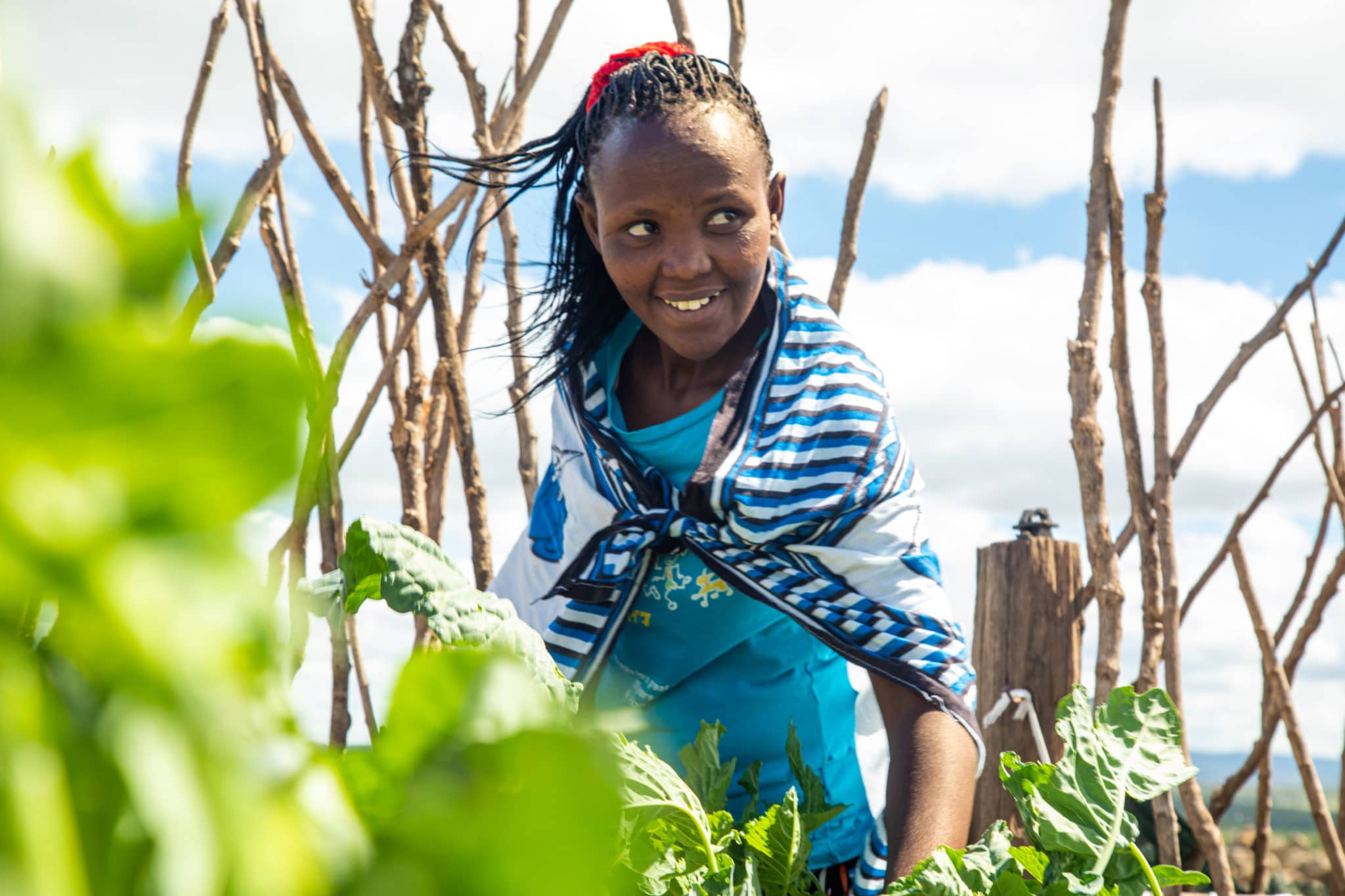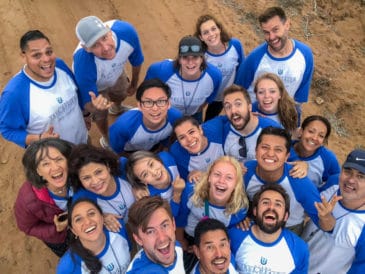The USANA Foundation exists to tackle the world’s number one health risk: malnutrition. Our Global Meal Relief initiative provides immediate emergency food relief to those impacted by disaster, tragedy, loss, and extreme poverty. And although we help millions of families get back on their feet each year, we’re unable to provide this support indefinitely.
We’ve been looking for a solution that goes a step further to empower people to help themselves and their families for years to come. And we found it: USANA Garden Towers.
Garden Tower: A Garden in a Bag
Around 35 percent of families in the United States grow food at home or in a community garden. A vegetable garden is a sustainable solution that, with effort, can make significant inroads into providing long-term nutritional support. But while the idea of introducing pop-up gardens to malnourished communities around the world isn’t new, making it work logistically has presented some challenges—especially in a country like Kenya with its diverse weather conditions.
We first heard about Garden Towers through the team at 100 Humanitarians. They had tried to build traditional garden boxes for Kenyan communities, but the boxes were destroyed by termites, rain, and wind. The 100 Humanitarians team decided to get creative and looked online for inspiration. One search led them to hobby bags filled with dirt to grow small plants. And with upscaled bag sizes and industrial-strength materials, they solved their problem. What started as an at-home hobby kit soon evolved into the Garden Towers we know today.
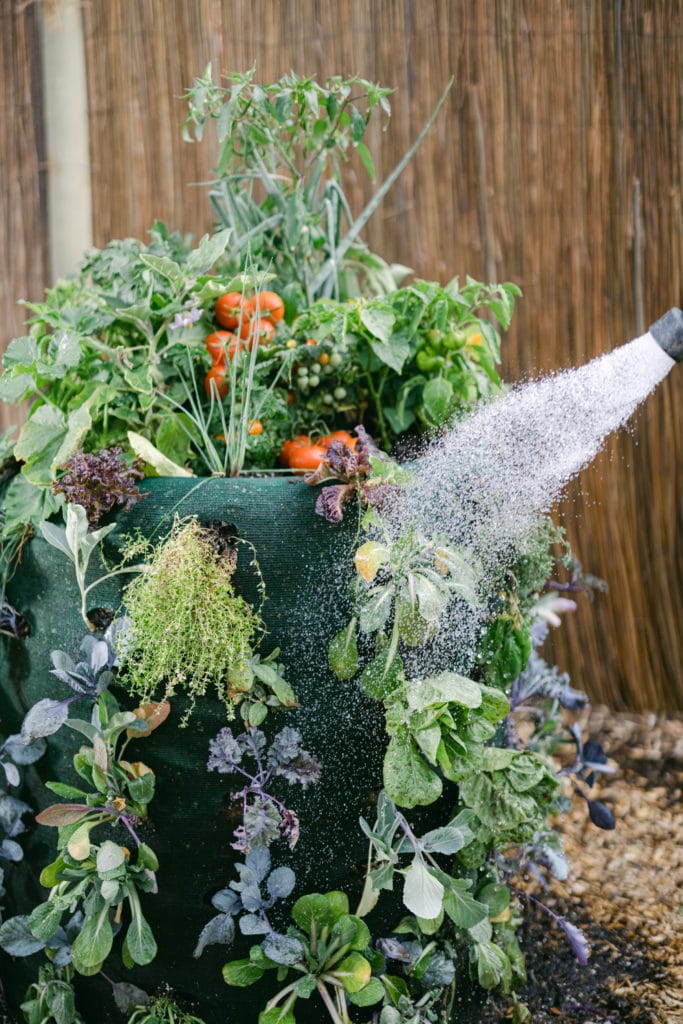
Garden Towers are nothing more complicated than a large bag of soil encased in heavy mesh. Yet their simplicity is what makes them accessible to families living in some of the most impoverished conditions in the world. Measuring a mere three feet in diameter, they take up barely any room, which is essential when over one billion people around the world have little to no access to land. Each Garden Tower holds up to 120 plants and lasts for up to five years. Families can use the soil around them mixed with manure from their farm animals to create fertile compost.
For the first time ever, entire communities are beginning to find themselves fully self-sufficient.
More Than a Food Source
When we started working with 100 Humanitarians to fund Garden Towers in Kenya, we thought we had merely found a way to deliver a sustainable food source at scale—and we were delighted with the impact this would have on the lives of those receiving them.
Little did we know these three-foot-square gardens would mean so much more to these families. True, a Garden Tower provides around five to eight meals per week for a family of six all year long—no simple feat. But being a source of sustenance only scratches the surface of the profound communal benefits of Garden Towers.
A Source of Income
For some, a Garden Tower yields more vegetables than a family needs, and so they sell the excess to other locals who would otherwise embark on a six-hour roundtrip to the nearest market for food. The income these sales generate is enough to pay for school fees and essential supplies. Other people earn income by sewing the Garden Towers or shoveling the soil—there’s an opportunity for a better quality of life at every step.
Inspires an Entrepreneurial Spirit
When people who have survived with very little but suddenly find themselves in a position to produce, grow, and provide, don’t stop at sharing their harvest with their community. Many are driven to see how much good they can do with their newfound opportunities. We’ve seen exhausted, desperate mothers find a new lease of life by starting businesses or teaching others how to sew and assemble Garden Towers for their village—and earn a wage while doing so.
Improves Mind and Body Health
Gardening is a therapeutic exercise—a luxury few, if any, of these families have ever had a chance to explore. Taking care of their Garden Towers allows them to practice brain and body development and build self-confidence and self-reliance. Before, many of these people were extremely malnourished, existing on a diet of blood, meat, and milk. Now, the added vegetation in their meals means they now receive much-needed fiber, vitamins, minerals, and nutrients.
Low Environmental Impact
A Garden Tower uses 30 percent less water than traditional gardening practices. While this is significant at any time, it could mean the difference between crops surviving or dying in a region as dry as the Masai Mara. Plus, the towers themselves are environmentally friendly and recyclable.
Improves Overall Quality of Life
For the families we work with, survival is a way of life. They must do extraordinary, often desperate things to live. And the opportunity to grow their own food and earn a wage has fundamentally improved their quality of life.
Having seen the impact Garden Towers have made in Kenya, our next steps are clear: we need to share Garden Towers with the rest of the world.
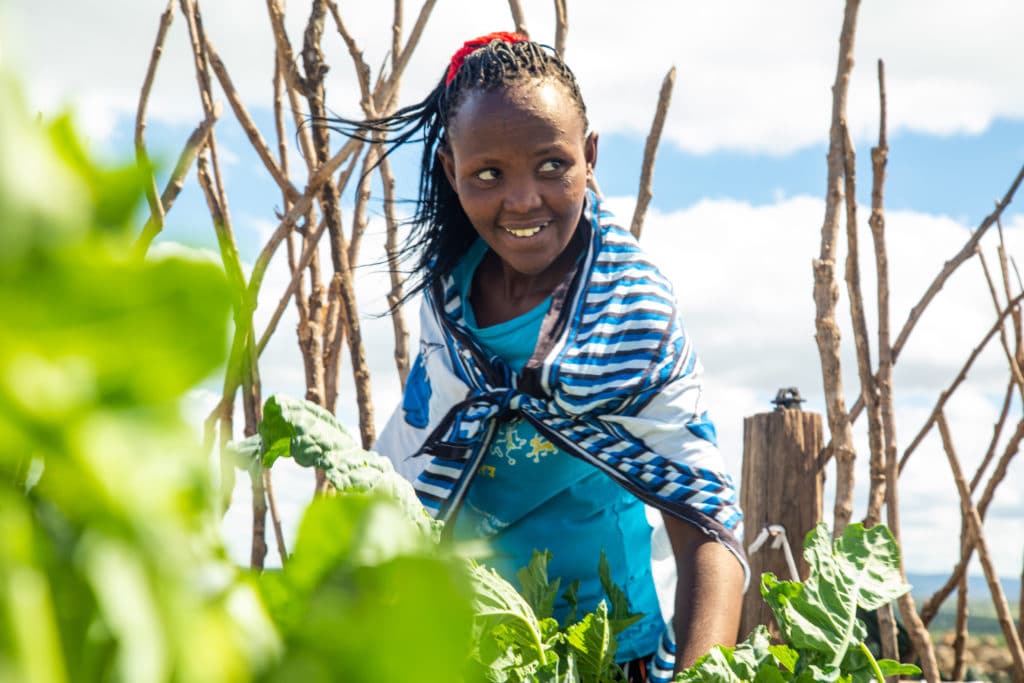
The Masai tribe plant Garden Towers near their homes. 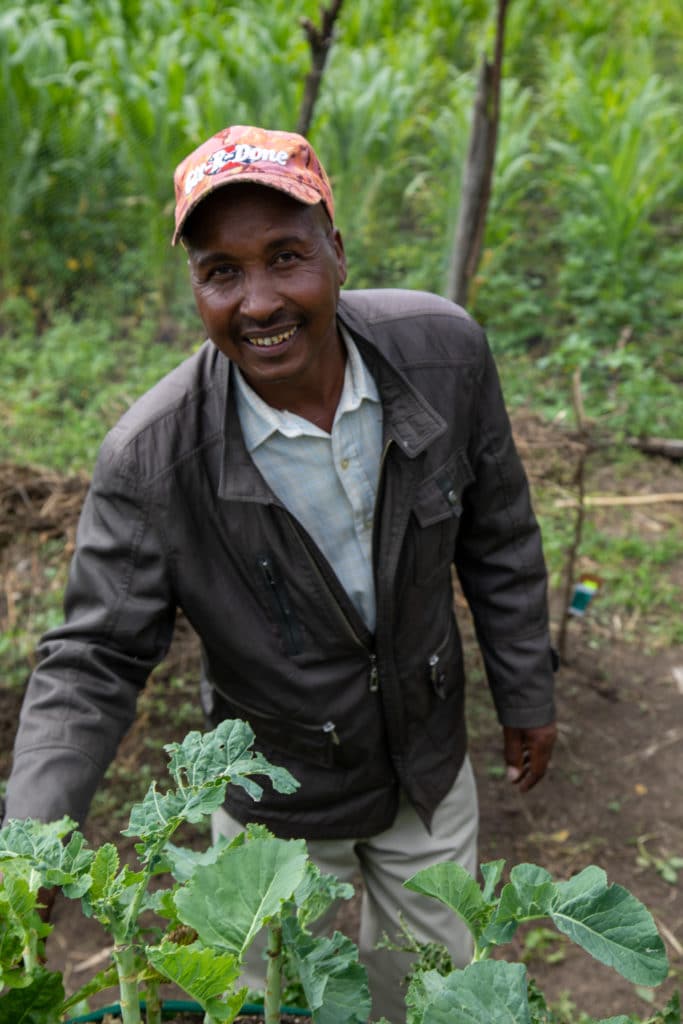
Men from the Masai tribe assist in the planting of Garden Towers. 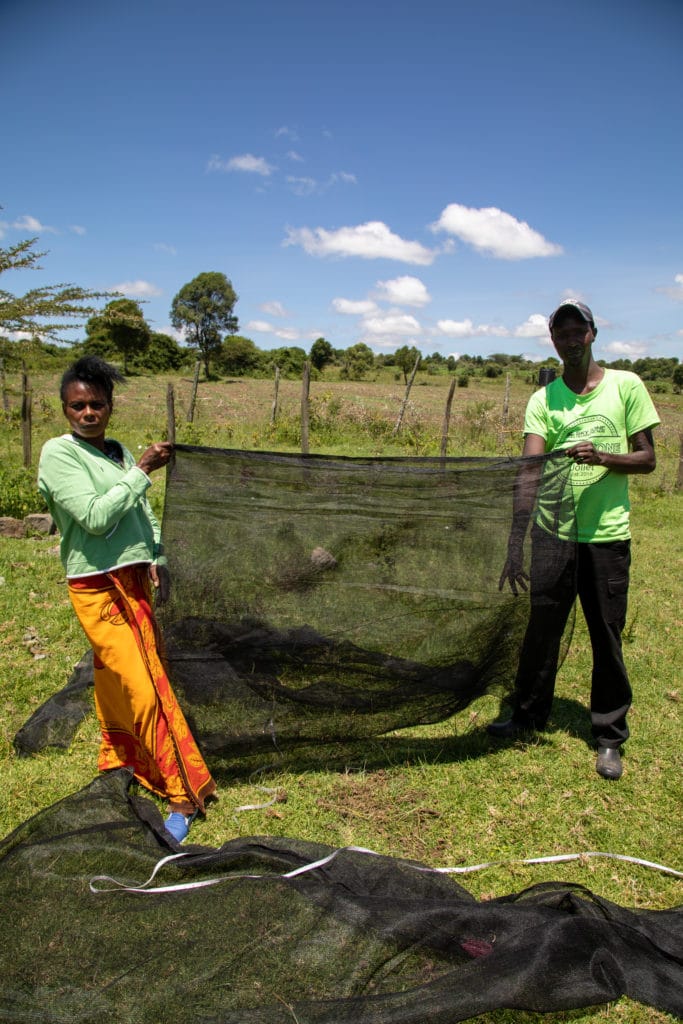
A Garden Tower after it’s been sewn. 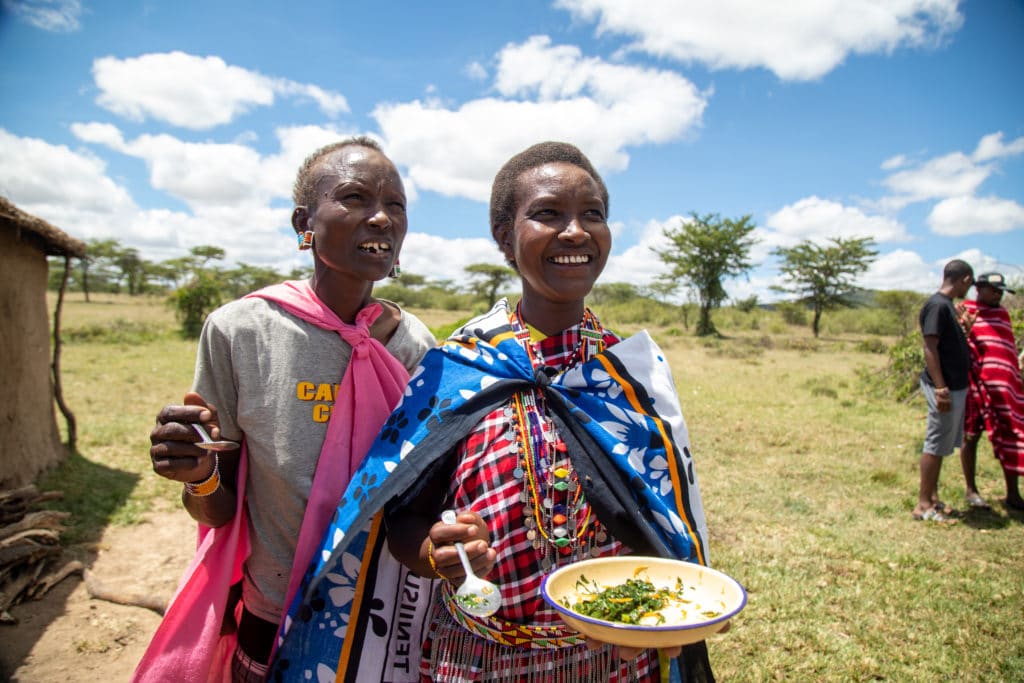
The Masai women cook and eat the vegetables grown from their Garden Towers. 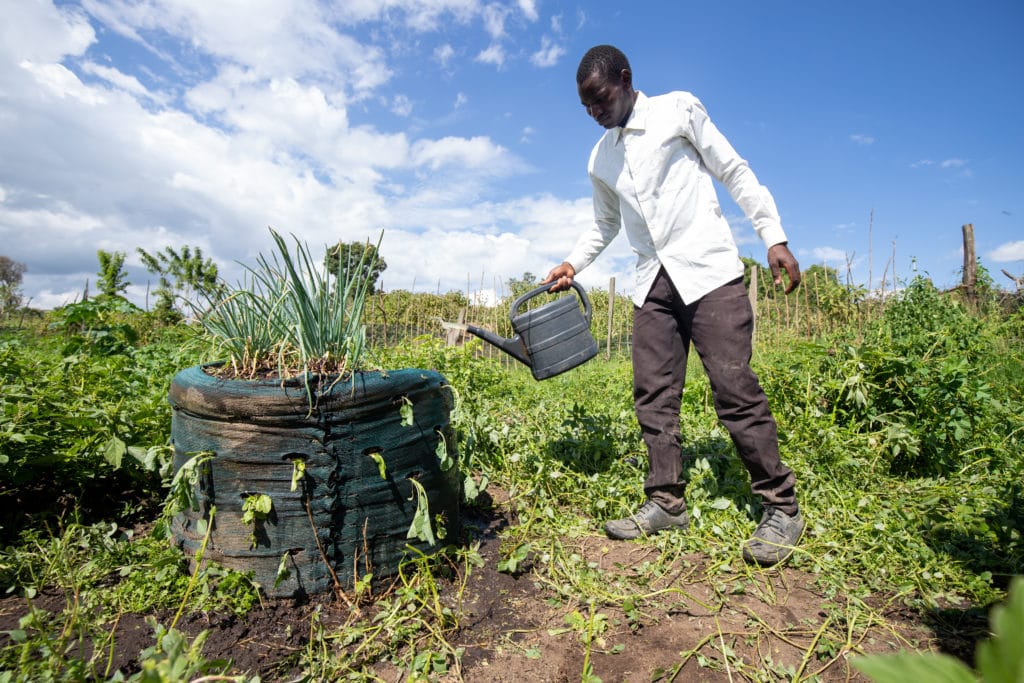
Watering the Garden Towers. 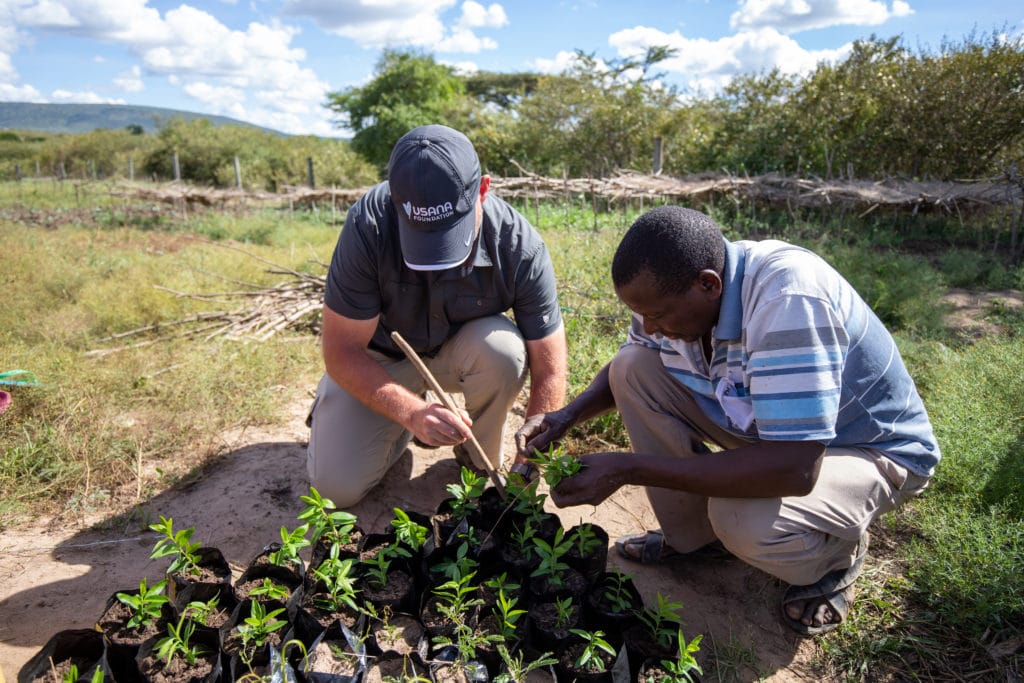
Transplanting the seedlings to the Garden Towers. 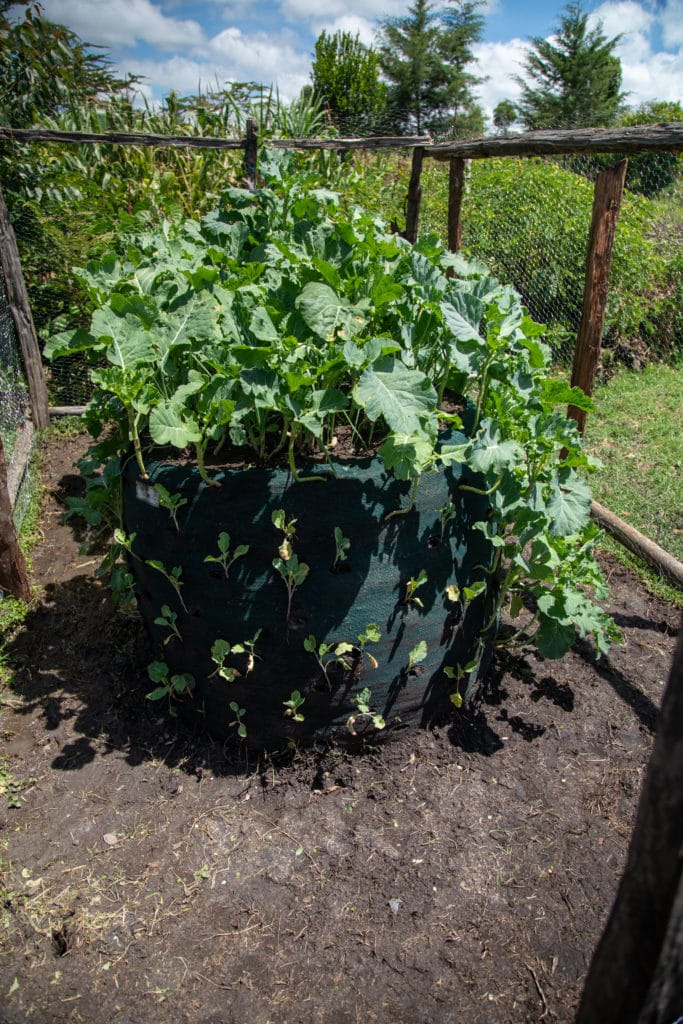
A flourishing Garden Tower in the Kenyan desert.
Make a Difference
Our Garden Towers initiative is in its infancy. So far, we’ve provided 700 Garden Towers through our partnership with 100 Humanitarians to support their program in Kenya. And now we plan on taking our gardens global.
We’re talking with other partners about bringing this initiative to mission homes, childcare facilities, landfill communities, and rehabilitation centers in Mexico, Uganda, Colombia, and Thailand—and this is only the beginning. Malnourishment affects every corner of the world, but you can be the solution.
For only $20, you can provide a family with a Garden Tower and everything they will need to successfully produce five to eight nutritious meals per week for years to come. Donate to the USANA Foundation to support this worthwhile cause.
Looking for even more ways to help? Take a look at how volunteers all over the world serve and fundraise with the USANA Foundation.

